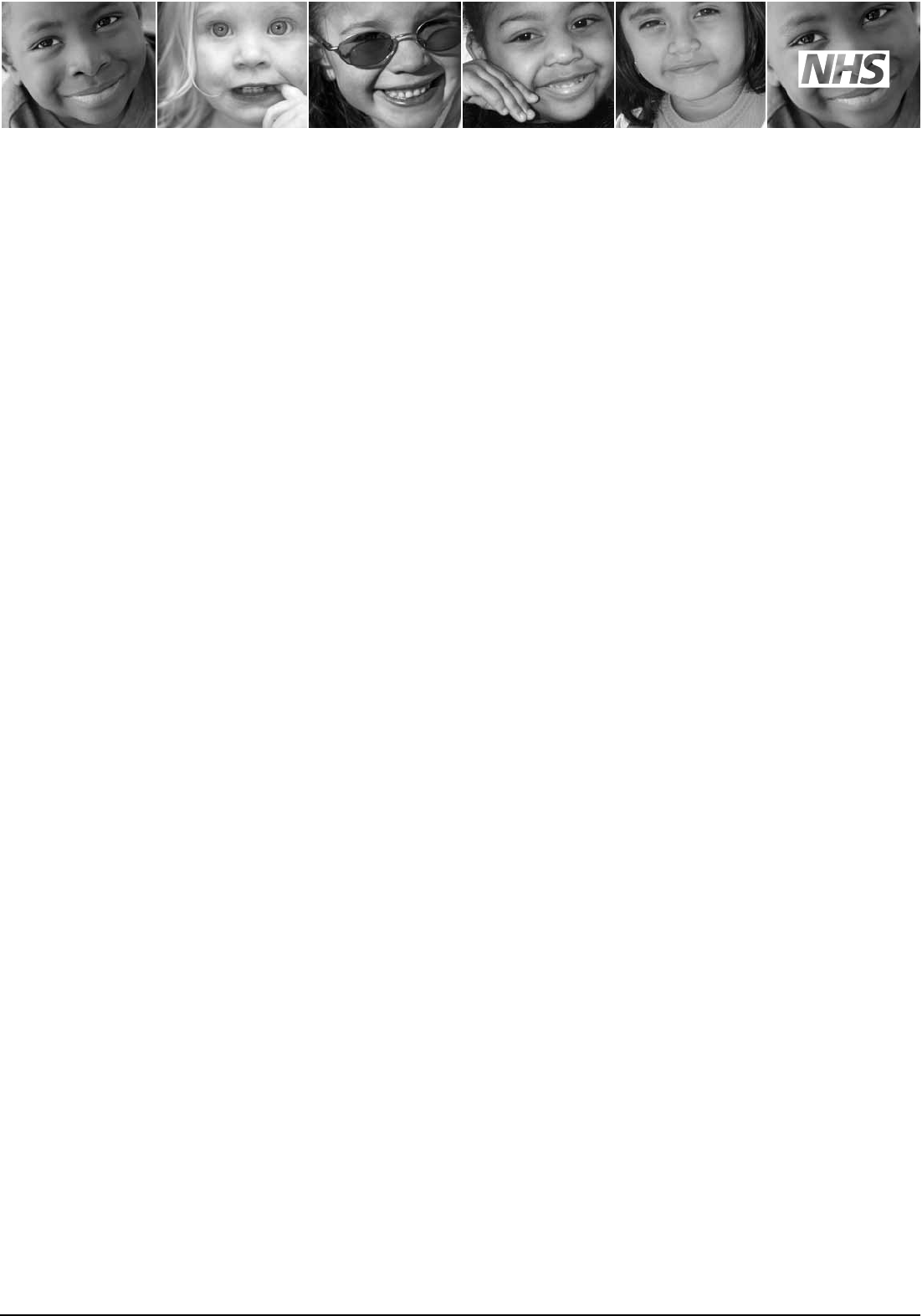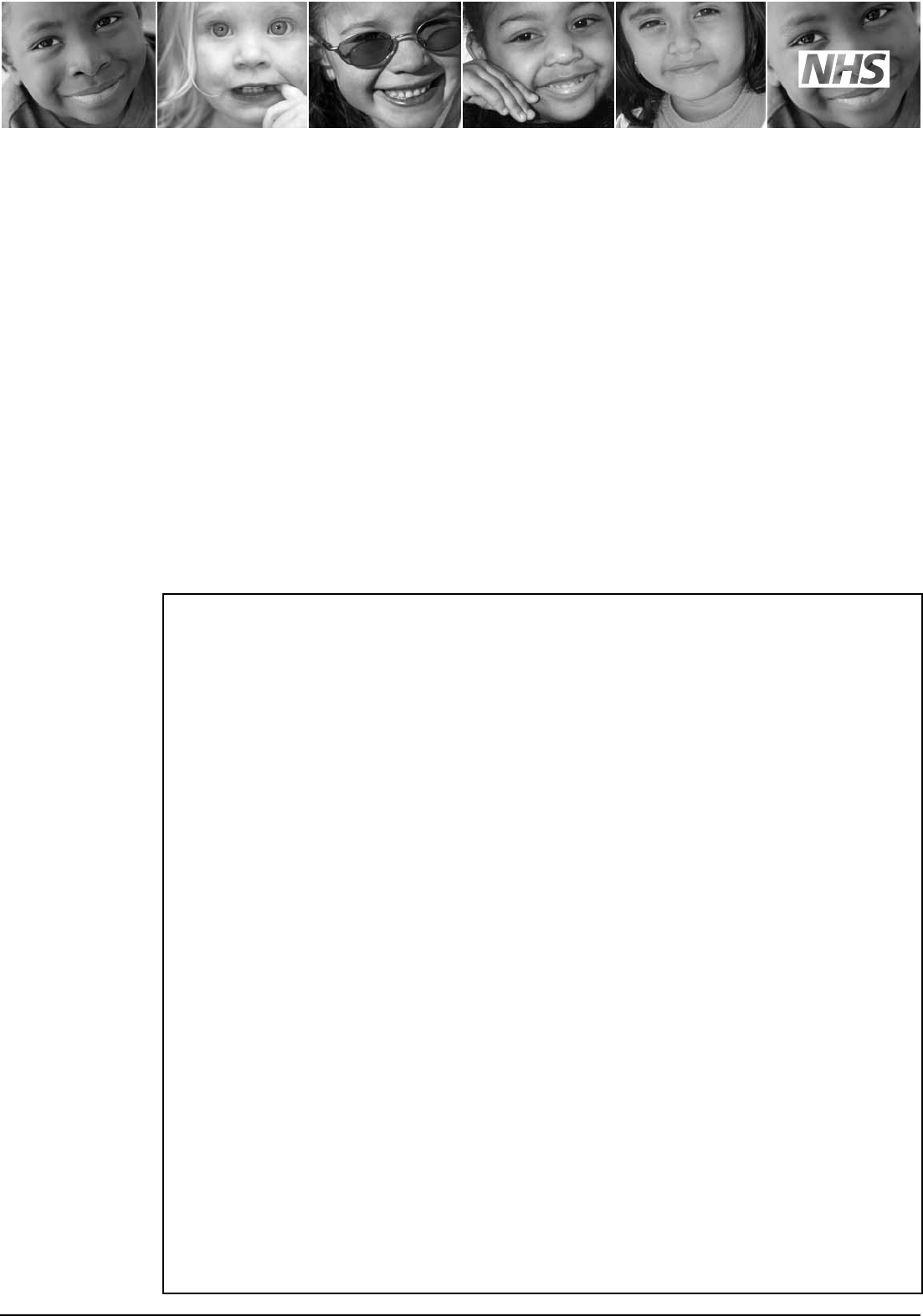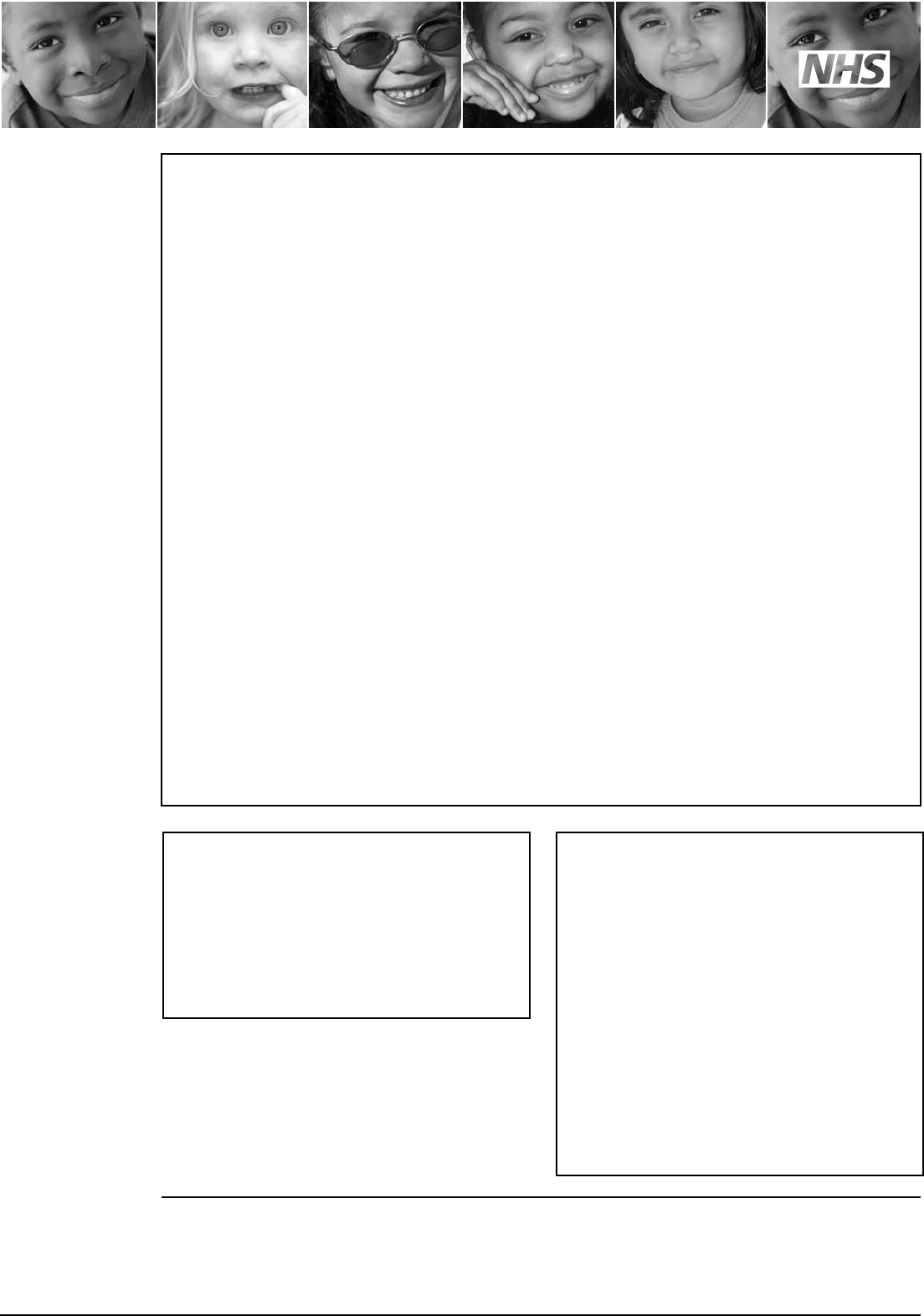
Sheet 1 of 3 Ref: 2012F0225 © GOSH NHS Foundation Trust April 2012
What are steroids?
Steroids are hormonal substances that
are produced naturally in the body by the
adrenal glands (which are just above each
kidney) and by the reproductive organs.
There are many different types of steroids
and they have different effects on the
body.
Common types of steroids used
are: prednisolone, budesonide,
hydrocortisone, dexamethasone,
fludrocortisone, and occasionally
methylprednisolone. These steroids are
known as corticosteroids. These are
different to the anabolic steroids used by
athletes to enhance their performance.
How are they given?
Steroids are usually given by mouth in the
form of tablets or soluble tablets.
They may also be given into a vein (intr-
avenously or IV) through a cannula, central
venous catheter or implantable port.
What are the most
common side effects?
If your child is given a short course of
steroids, they are unlikely to suffer many
side effects. These effects are temporary
and will stop when the course of steroids
has finished.
nChanges in behaviour: You may notice
that your child becomes irritable and
has mood swings. They may revert
to earlier childhood behaviour, for
example, temper tantrums. This effect is
usually temporary but please report any
concerns to your doctor or nurse who
will be able to offer advice and support.
nWeight gain: Your child may have
an increased appetite, which means
they will feel hungrier than usual and
therefore might eat more and then gain
weight. Keeping to a well balanced
diet may help. Another reason why
your child might gain weight is due to
increased fluid retention.
nIrritation of the stomach lining: These
medicines are best taken with meals
or after food to reduce any stomach
irritation.
Short-term steroid treatment
Steroids are medicines that are used to treat
many conditions. This fact sheet explains what
steroids are, how they are given and some of the
possible side effects. Some rare and long-term
side effects are explained as well as the more
common ones. Each person reacts differently
to medicines, so your child will not necessarily
suffer from every side effect mentioned. If you
have any questions or concerns, please ask your
doctor, nurse or pharmacist.
Great Ormond Street Hospital for Children NHS Foundation Trust: Information for Families

Sheet 2 of 3 Ref: 2012F0225 © GOSH NHS Foundation Trust April 2012
What are the less
common side effects?
These side effects tend to occur only after
long-term use or with high doses.
nWeight gain: Your child’s face may
appear more chubby than usual,
particularly after long-term steroid
treatment. If the weight gain has been
considerable, your child may develop
stretch marks, especially on their tummy
and thighs.
nHigh blood pressure: Your child may
complain of having a headache or
feeling dizzy.
nAlteration in blood sugar level: Steroids
may cause a temporary increase in
blood sugar levels. Some signs of a
raised blood sugar level are thirst and
needing to pass more urine than usual.
nEffect on growth and/or thinning of
bones: If taken over a long period of
time or at a high dose, your child’s
growth may be affected and/or your
child’s bones may become thinner.
Your child will be monitored closely
throughout treatment to reduce the
chance of these side effects
Important information
Immunisations
As steroids affect your child’s immune
system, children who are receiving a high
dose of injected or oral steroids should
not be given any ‘live’ vaccines. Because
your child’s immunity may be affected
by steroids, they may be very ill if they
catch one of the diseases that vaccination
prevents so it is important that they are
up to date with the other vaccines. Your
other children should be immunised
according to the usual schedule and
although chicken pox vaccine is not
routinely given to all children, it may
be advised for the siblings or other
close family members of a child who is
receiving high dose steroids. If you have
any questions about immunisations,
please ask your doctor.
Chicken pox
If your child has not had chicken pox
and is in direct contact with a child who
has chicken pox or develops it within
48 hours, you must contact the hospital
immediately. Chicken pox can be more
severe in children who are taking
steroids. A blood test will be arranged to
check your child’s antibodies to chicken
pox. Your child may need an injection to
protect him or her. Your doctor or nurse
will discuss this with you.
If your child has chicken pox, it may be
necessary to stop your child’s steroid doses.
Your doctor will discuss this with you.
Infections
Your child may be at an increased risk
of infection while they are on steroids.
If your child has a fever or becomes
unwell, contact your doctor or nurse.
Check ups
Your child should be monitored closely
while on steroid treatment. This may
include regular measurement of his or
her weight, blood pressure and urine.
This will usually be carried out by
your GP surgery, local hospital or local
community nurses.

Sheet 3 of 3 Ref: 2012F0225 © GOSH NHS Foundation Trust April 2012
General Instructions
nYou will be given a steroid card if your
child is on steroids for more than two
weeks. Show the card to any health
care professional looking after your
child.
nIf your child has been on steroids for
more than a few weeks and becomes
unwell after stopping treatment or
needs to have an operation, their
natural production of steroids (which
helps a child respond to a stressful
situation) will be reduced. They may
need a short course of steroids to
cover this period.
nKeep medicines in a safe place where
children cannot reach them.
nThe medicines should be stored at
room temperature.
nSteroids are best taken at the same
time each day with food (usually
in the morning), as directed by the
doctor, nurse or pharmacist. Children
on twice daily steroids may have
difficulty in sleeping if they take their
second dose too late in the evening
so make sure that the dose is given by
late afternoon.
nIf your child is on a long course of
steroids or taking high doses, the dose
will be reduced gradually over a period
of time as directed by your doctor.
When your child has finished the
course, return any remaining tablets
to the pharmacist. Do not flush them
down the toilet or throw them away.
nIf your child vomits after taking the
dose, inform the doctor or nurse, as
your child may need to take another
one. Do not give them another dose
without informing the doctor.
nIf you forget to give your child their
dose, do not give them a double dose.
Compiled by the Pharmacy Department in collaboration with the Child and Family Information Group
Great Ormond Street Hospital for Children NHS Foundation Trust, Great Ormond Street, London WC1N 3JH
www.gosh.nhs.uk
Useful numbers
GOSH Switchboard:
020 7405 9200
Pharmacy Medicine Information:
020 7829 8608
Notes
